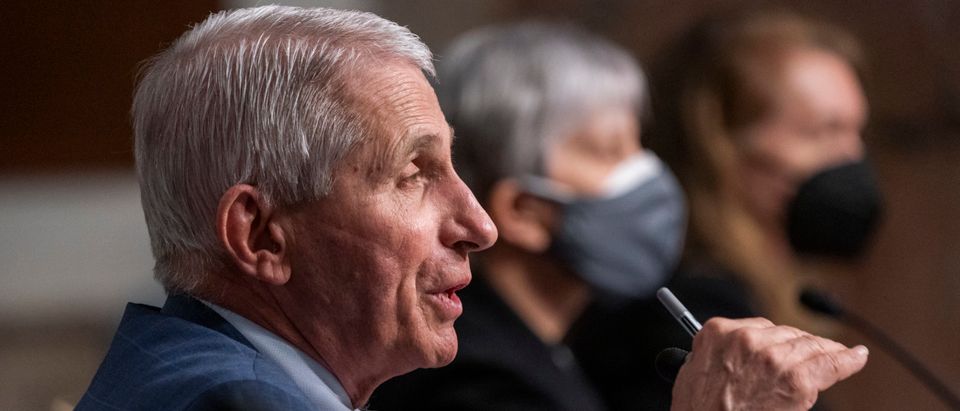A Stanford doctor laid out Wednesday what he says is Dr. Anthony Fauci’s “playbook” for silencing anyone who goes against the grain in regards to COVID-19.
Dr. Jay Bhattacharya, a professor at Stanford School of Medicine, said Fauci and Dr. Francis Collins try to “create a false impression of scientific consensus on COVID policy” by labeling scientists “who disagree ‘fringe.'”
“[They] deploy big tech misinformation hordes to suppress opposing thoughts,” Bhattacharya tweeted as part of a list.
The Fauci/Collins playbook to create a false impression of scientific consensus on COVID policy (used on lab-leak, lockdowns & early treatment):
1. Call scientists who disagree “fringe”
2. Deploy big tech misinformation hordes to suppress opposing thoughts
[1/2]— Jay Bhattacharya (@DrJBhattacharya) February 3, 2022
“[They] deploy press propagandists & scientist allies to smear and takedown opponents” and they “reward allies with large grants.” (RELATED: Fauci Was Warned About Possible Gain-Of-Function Creation Of COVID-19 In January 2020, Newly Transcribed Emails Show)
In a recent op-ed for Newsweek, Bhattacharya explained in further detail the “playbook,” noting how during October 2020 when the Great Barrington Declaration “criticized Fauci’s lockdown strategy,” Collins, “a geneticist with little public health experience – wrote an email to Fauci suggesting a ‘take down’ of the declaration, and characterizing its Harvard, Oxford and Stanford authors as ‘fringe epidemiologists.'”
A copy of the email, obtained by the American Institute for Economic Research through a Freedom of Information Act request, showed Collins telling Fauci that the declaration “seems to be getting a lot of attention — and even a co-signature from Nobel Prize winner Mike Leavitt at Stanford.”
“There needs to be a quick and devastating published take down of its premises. I don’t see anything like that on line yet — is it underway?” Collins wrote.
Bhattacharya also criticized in the op-ed Fauci’s recent claim that he was receiving death threats. He argued that while it’s “tragic” that scientists have to deal with threats, Fauci and Collins “organized [a] ‘take down'” of other scientists with “their grave mischaracterization of focused protection as a let-it rip strategy” which allegedly led to death threats against several authors of the Great Barrington Declaration.


